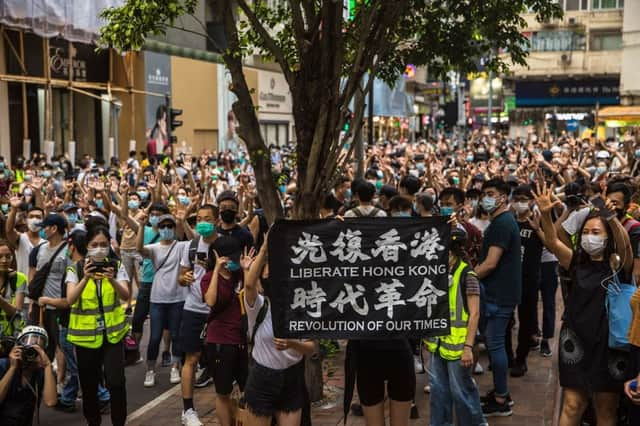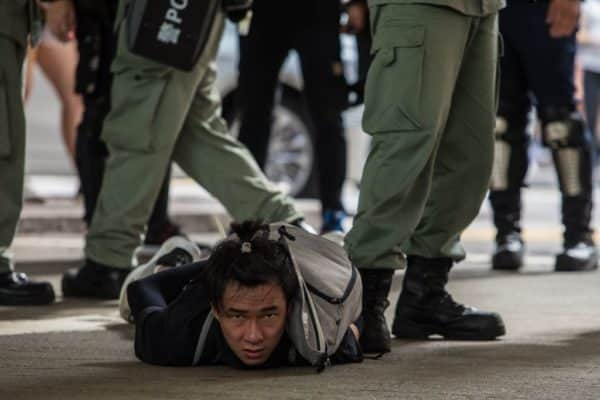This is why people are protesting in Hong Kong, as controversial new 'anti-protest' law is enforced


The first arrests under a controversial new law “anti-protest” law have been made, as Hong Kong police crack down on activists
The new law has been brought in by authorities in an effort to protect “national security”, but critics say it could lead to arbitrary detention, extradition to mainland China and the erosion of democracy.
Advertisement
Hide AdAdvertisement
Hide AdThe national security law targets secession, subversion and terrorism with punishments up to life in prison; police have used water cannon, tear gas and pepper spray on demonstrators.
Here’s everything you need to know:
What is the new law?
The new law asserts that damaging public transport can be considered an act of terrorism, and opens the possibility for those suspected of breaking the law to be wire-tapped and put under surveillance.
Perhaps more worrying, some trials will now be able to be conducted behind closed doors, with those found guilty banned from standing for public office in the future.
Beijing now has control over many of these cases, and its new security office with its own law enforcement personnel – established under the legislation – does not come under the local authority’s jurisdiction.
Advertisement
Hide AdAdvertisement
Hide AdHong Kong’s chief executive also has the power to appoint judges to hear national security cases, and some cases can be trialled in mainland China.
Why is it controversial?
When Hong Kong was returned to China from British control in 1997, a ‘Basic Law’ was brought in to protect freedom of speech and democratic rights, protections that were meant to last at least 50 years.
Also known as the “one country, two systems” principle, these freedoms didn’t necessarily apply in China, and the new law appears to be the first step to dismantling the liberties afford Hong Kong citizens, bringing it more in line with the mainland.
The new law criminalises secession, subversion, terrorism and collusion with foreign forces, and can be punished with up to life in prison; as an idea of how strict the rules are, waving an independence flag could be considered a crime of secession under the new rule.
Advertisement
Hide AdAdvertisement
Hide AdIt has been widely condemned by countries including the US, where Secretary of State Mike Pompeo said: "[China] promised 50 years of freedom to the Hong Kong people, and gave them only 23."
UK Foreign Secretary Dominic Raab has said the new security law is a "grave and deeply disturbing step", calling it a "clear and serious breach" of the 1985 Joint Declaration, a legally binding agreement signed by the UK and China to protect freedoms in the territory.
Why are people protesting?


The change in rules come after months of widespread protests and civil rest in Hong Kong, spurred by calls for greater democracy.
The protests were triggered by a now-scrapped bill permitting extraditions to the mainland, and turned into a larger anti-China and pro-democracy movement.
Advertisement
Hide AdAdvertisement
Hide AdThey remained firmly in the headlines towards the tail end of 2019, but since the outbreak of coronavirus , the movement has taken a back seat in the news narrative.